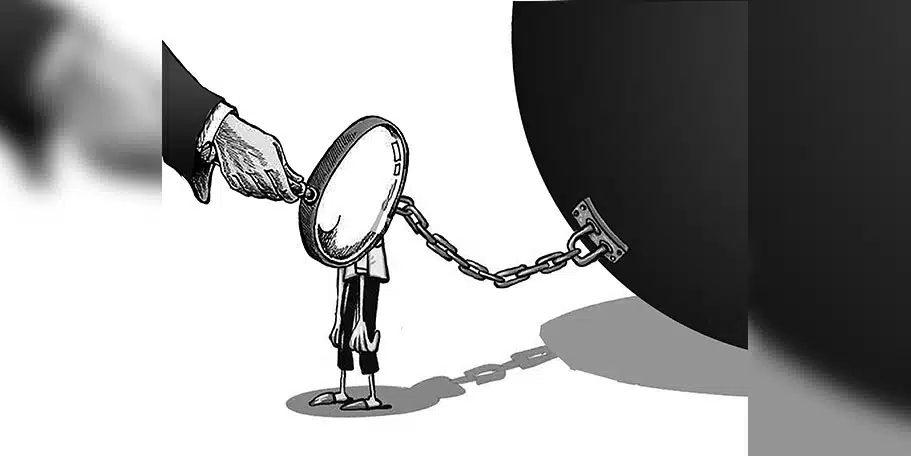
The furore over the enactment this week of a law by Ethiopia’s House of Peoples’ Representatives granting broad immunity to individuals engaged in undercover investigations shows no sign of dying down any time soon. Parliament passed a controversial amendment to the 2013 Prevention and Suppression of Money Laundering and Financing of Terrorism Proclamation, shielding undercover investigators from prosecution for crimes committed “beyond their control” or “without their authorization” during covert operations—except for murder. The explanatory note submitted to parliamentarians along with the text of the proclamation argues this is justified on the ground that since investigators act “in the public interest”, protecting them from facing prosecution for acts done in the course of duty enables them to do their job effectively. The amendment, ostensibly intended to give the government greater ability to combat financial crimes and terrorism, has sparked fierce debate among lawmakers, legal experts, and human rights advocates, who warn that if left unchecked, it could undermine the very foundations of justice, erode public trust, and push Ethiopia further away from principles of transparent governance and rule of law.
With the notable exception of the 1955 revised constitution, which explicitly provided that no one has the right to bring suit against the Emperor, Ethiopia has never contemplated with granting immunity to anyone who perpetrates a crime. Globally speaking while there are some legal protections for undercover agents, they generally not absolute and do not extend to criminal acts carrying heavy sentences. At first glance, laws granting immunity might aim to enable law enforcement to operate flexibly and effectively, especially in complex investigations that require covert actions. However, the language of the legislation in question is alarmingly vague. Terms like “beyond their capacity” and “without their authorization” lack precise definition, opening avenues for arbitrary interpretation and abuse. This ambiguity effectively grants investigators or agents a carte blanche to undertake actions which are clearly prohibited under the constitution as well as international human rights treaties Ethiopia is a party to —such as torture, inhumane, and degrading treatment—under any circumstance, even during a state of emergency. The deliberate vagueness stands in stark contrast to other legal systems, which adopt standards like ‘necessity’ and ‘proportionality’ to determine what action qualifies for immunity.
The most immediate and profound concern arising from the amendment is the potential erosion of accountability. When law enforcement or investigative agents are immune from prosecution for acts committed in pursuit of their objectives, avenues for redress and justice are severely curtailed. Victims of overreach or abuse will find it increasingly difficult to seek justice, and perpetrators can act with impunity. This imperils human rights, particularly the rights to privacy, fair trial, and protection from torture or ill-treatment. Without clear boundaries and oversight, the risk heightens that covert investigations will devolve into unchecked abuses—harassment, intimidation, unlawful detention, or worse—especially targeting opposition figures, journalists, human rights defenders, or marginalized communities. Furthermore, the immunity provision could undermine public trust in the justice system and state institutions. Citizens may become wary of government actions undertaken clandestinely, suspecting these could be used to silence dissent, suppress opposition, or target critics without accountability. Such a climate fosters fear rather than confidence, weakening Ethiopia’s fragile democratic fabric.
While security concerns are genuine and combating organized crime or corruption is vital, they should never override fundamental rights and legal standards. Given Ethiopia’s turbulent political context investigative powers must be exercised responsibly, within a clear legal framework that includes oversight, transparency, and accountability mechanisms. A law granting near-unrestricted immunity risks tipping the balance dangerously in favor of unchecked state powers. If the specter of this law from becoming a tool for abuse is to be avoided, Ethiopian authorities should consider such safeguards as replacing the immunity clause with a narrow, clearly defined exception that clarifies terms like “beyond their capacity” and “without their authorization” to limit the scope of immunity and prevent arbitrary or extensive interpretations; implementing reporting requirements for investigations and upholding the public’s right to know about state actions that affect their rights; providing avenues for victims of abuse or overreach to seek redress and accountability; and periodically assess the law’s impact with a view to make amendments as necessary to prevent systemic abuse or erosion of legal standards.
The Ethiopian government’s move to grant broad immunity to individuals conducting undercover investigations, lessening accountability except in cases of murder, is a double-edged sword. While its purported objective is to enhance investigative efficacy, its vague scope risks undermining the rule of law, deepening societal divisions and undermining the legitimacy of the constitutional order. The stake is high: Ethiopians have no choice but to challenge this dangerous precedent. Otherwise, the law will become another tool for repression, betraying the very principles of justice and democracy Ethiopia’s constitution promises to cherish.
.
.
.
#Place #StateSanctioned #Impunity
Source link











